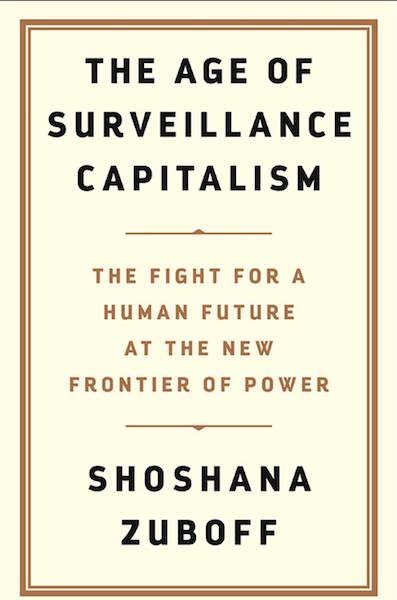|
|
Wednesday Diversion: Corporate Report Card; Intel and Facebook Move the Goalposts; Apple Reacts to Developer PressureBy Graham K. Rogers
The battery charging problem that was addressed concerned older (Intel) Macs, but those from 2016/17 may have an additional problem. Mine was replaced a while back in an Apple program, but for those that will not charge past 1% (I never had that), it is reported by several sites that Apple is to replace these for free.

MacBook Pro from November 2016
Tim Cook was himself originally hired as senior vice president for worldwide operations and was later selected by Steve Jobs as his successor. I mentioned this last time, as well as the unceasing negativity by the "500 words by 5pm brigade" and several more so-called journalists who should have known better. Tim Hardwick in Mac Rumors links to a piece in Bloomberg by Austin Carr and Mark Gurman that looks at his years as CEO of Apple and the success story it is. This is a long article that comments fairly on Cook, including some of the good decisions and the questionable relationships (China, Trump) without going into assassination mode. At about 4000 words it is not a quick read, but Cook is well-served by the examination. Hardwick's summary breaks it down into some bullet points which are easier to digest, but the longer version is worth the (small) effort. In another report that carried the news about Riccio, Chance Miller (9to5Mac), writes that Apple is "transitioning the group working on "in-house displays and camera technology" to Johny Srouji" - the chip man. I saw later that several sites carried this news. I also saw mention on a number of sites that the Apple Car, or Project Titan, which may be running towards a release (this year, next year, sometime, never) will apparently not now be running in the Hyundai/KIA chassis, nor will it be built by either of them. Although several other companies are also developing chassis/frame/battery modular systems that can be used on several vehicles, none is a clear favorite at the moment. I still think that Rivian is in with a chance, although Nissan has also been mentioned.

M1 Macs with Big Sur: Image courtesy of Apple
As I tend to have something like 120-150GB space, depending on the Mac I am using, this has not been a problem for me, but in the past, I always tried to keep at least 50GB free for normal running. Less than that and the normal file-swapping that goes on may be affected and the computer could slow down. Now there is an even more compelling reason. In the text, that is like a Readme file, Mr. Mac explains the reasons behind the problems and sets out some ways in which it should be possible to recover from this unfortunate situation. Apple has been informed.
Lovejoy also adds, "It says Facebook also failed to source its data, making external review impossible. Not only that, but a different claim that the social network does source is wrong." This goes along with comments I had made on the initial Wall Street Journal ad and Facebook's obvious (to me) clouding of the issue. It is not as if Apple is preventing users seeing ads, it is just that they are to be notified that some companies may use their data in ways that they might not have realised: opt in or opt out. When I use an app on iOS now, I allow Apple and developers to collect data that may help improve the ways in which iOS and the apps work. I made that choice. As much as I can I opt out of data sharing with Facebook. Imagine then if Facebook added a new dimension: AI. Although Facebook mentioned AI in 2017 (and many companies are investigating such applications), Puja Das (AnalyticsInsight) writes that this seems now to have taken some serious steps towards reality: a brain reading computer. Initially there were benign goals (victims of paralysis). The concept is approaching much more of a reality and there is some suggestion that it is also being developed to assist with its social media platforms. Just because you can do something, does not mean you should do it. As they used to say of the police (maybe they should still), who will watch the watchers?
Isakson notes the article by Das outlining the brain-reading computer and adds, "The premise Facebook's scientists and AI experts are putting forward is either dangerously simplistic or (more likely) deceptively reassuring." He ends, "Like a dog waiting for a treat, we will sit up and beg for a service, especially an online service offered to us for free. And we will accept the consequences, especially if we are kept in the dark about what those consequences might be." I certainly fear the potential of these online giants: Facebook now more than Google. I had a look at Amazon and saw that the Kindle version of The Age of Surveillance Capitalism was available for a reasonable price, so downloaded that.
What do you do in the face of the lead that Apple now has? Nehal Malik (iPhone in Canada) reports that, while the M1 had been shown to produce good results in all benchmark tests, Intel has developed a new set of benchmarks that show its chips beating the M1 on all fronts. Indeed where Apple tech does not handle a particular technology, it has a score of zero, while Intel's products of course soar. This alternative reality does not have anyone convinced. Indeed it makes Intel look dishonest and even weaker. The new benchmarking from Intel also caught the eye of J. Fingas on Engadget who similarly outlines the ways in which Intel cherry-picked devices and testing methods, ending with, "Intel sees Apple's chips as enough of a threat that it feels compelled to launch a media offensive. . . ." Malcolm Owen (AppleInsider) also pointe out the cherry-picking in an article he wrote that examines several of the claims carefully. Intel does itself no favors here and this is reminiscent of the juvenile Samsung approach when faced with the iPhone.
Graham K. Rogers teaches at the Faculty of Engineering, Mahidol University in Thailand. He wrote in the Bangkok Post, Database supplement on IT subjects. For the last seven years of Database he wrote a column on Apple and Macs. After 3 years writing a column in the Life supplement, he is now no longer associated with the Bangkok Post. He can be followed on Twitter (@extensions_th) |
|


 That article was in book review on Fair Observer.
That article was in book review on Fair Observer. 